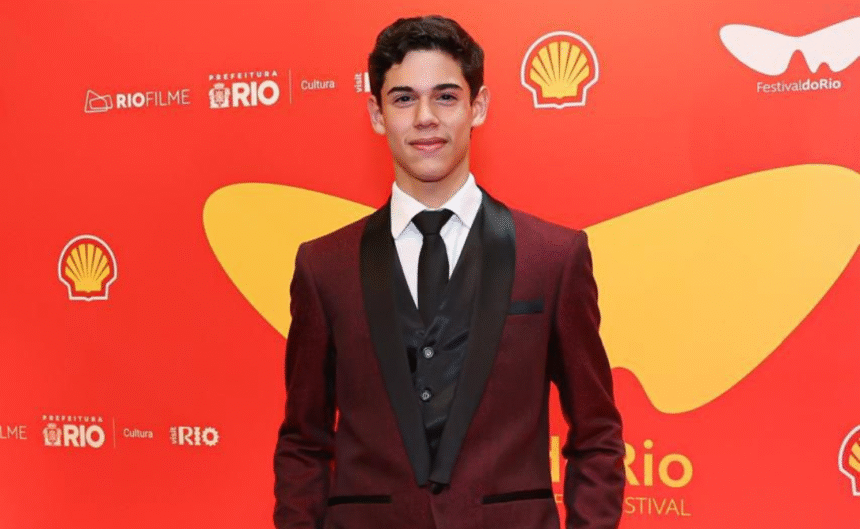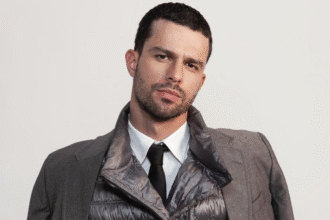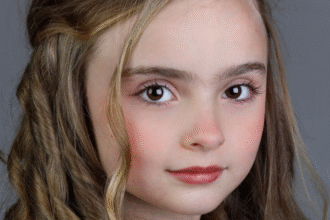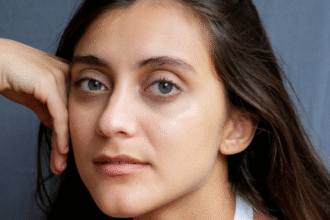After making his mark on a generation as the charismatic Zeca da Capa Verde in Detetives do Prédio Azul, 13-year-old actor Stéfano Agostini is celebrating a new phase in his career with his big screen debut. The young talent from Niterói is part of the cast of the film (Des)Controle, directed by Rosane Svartman and Carol Minen, which premiered at the Rio Film Festival and is scheduled for release in 2026.
In the film, Stefano plays Duda, a teenager trying to help his mother, played by Carolina Dieckmann, overcome her alcoholism—a central theme of the film, which sensitively addresses the impact of addiction on family dynamics. With a mature and emotional performance, the actor confirms his transition from the world of children and young adults to more intense and complex roles, solidifying himself as one of the promising newcomers of Brazilian cinema.
You started your career very early and grew up in front of the camera. What has it been like to mature within the artistic world and discover new challenges as you’ve grown?
Yes, I had to relearn how to speak like I did as a child. This process of rediscovering my accent was a delight, very unique—a process I’d never done before. In this process of rediscovery, I traveled, returned to my hometown, Oberlândia, talked to my grandparents and friends, and really turned on my listening, my awareness, to notice how the people in my city speak—the expressions, the slang, the melodies of speech.
Often this is automatic, but when we’re working on a project like this, our perception becomes more acute. That’s what I tried to do when developing the character Pedro, and it was very important to me. I think it’s essential for our audiovisual industry to tell these stories and allow Brazil to also be heard through its rural accent, the accent of the backlands, the Brazilian savannah. It was a lot of fun, and I felt very happy rediscovering my accent.
After nine seasons as Detective Zeca, what impacted you most during this period and what do you take from this character into your life and new roles?
This decision to accept a project that reconnected me with my roots, over another project that was also very relevant to my career, came from the heart. I chose Blood Red because I felt it was more aligned with my truth and with what I want to represent in my career—my message and the place I come from.
I believe that when we connect with our own roots, we can better communicate with the world and get closer to our goals and life purposes. Since I was little, I’ve always dreamed of traveling around Brazil and the world, filming, telling stories, and learning.
This character development was incredibly rewarding, precisely because it took me out of my comfort zone. I enjoy these challenges—and this one, in particular, was a return to my roots, to my essence. Adulthood often distances us from this, especially when we leave our hometowns and move to big cities, as was my case. So, this return was crucial and very important for me, both personally and professionally.
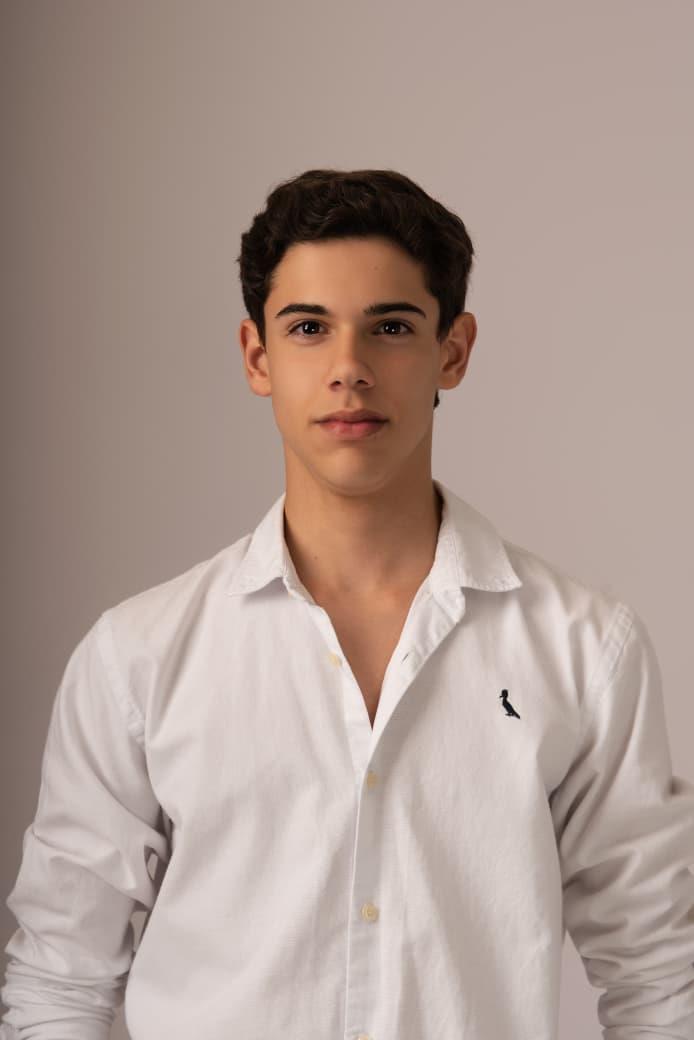
The film “(Un)Control” features a more complex role, unlike other children’s and young adult films. What was the process of preparing for a character with so many emotional layers like?
Playing Pedro, who is immersed in this mystical universe yet leads a peaceful life, was a wonderful and intriguing challenge. Pedro embodies the everyday life of Minas Gerais, and our core character in the series grounded this supernatural universe—which is crucial in dramaturgy, because it connects with the audience and keeps the story from becoming inaccessible.
When we showcase local daily life—the Minas Gerais coffee, cachaça, straw cigarettes, the maned wolf, an icon of the Cerrado—we connect with the audience. Otherwise, it could become too “Hollywood,” like stories about vampires and werewolves. Bringing in these elements of Brazilian culture makes everything more original and inviting. Being a part of this was a huge joy for me.
Your character experiences his mother’s suffering and tries to help her silently. What did you learn about empathy and human frailty from playing Duda?
My creative process is very much from the outside in. First, I think about how the character walks, their body, their gaze, their mannerisms, how they approach life, and the environment they’re in. Only then do I begin to explore the inner layers—what they feel, their fears, dreams, and goals.
I really enjoy working this way, and a piece of advice I heard from Rodrigo Lombardi on set stuck with me: “Before you go on set, forget about the techniques. Leave everything aside, open your ears, and have fun.”
This gave me more confidence. It’s natural to be nervous on set, especially in your first professional experience—there are so many people, so much pressure. But it’s a paradox: when acting, you have to abandon your rationality and let your inner child take over. Lombardi’s advice was truly special.
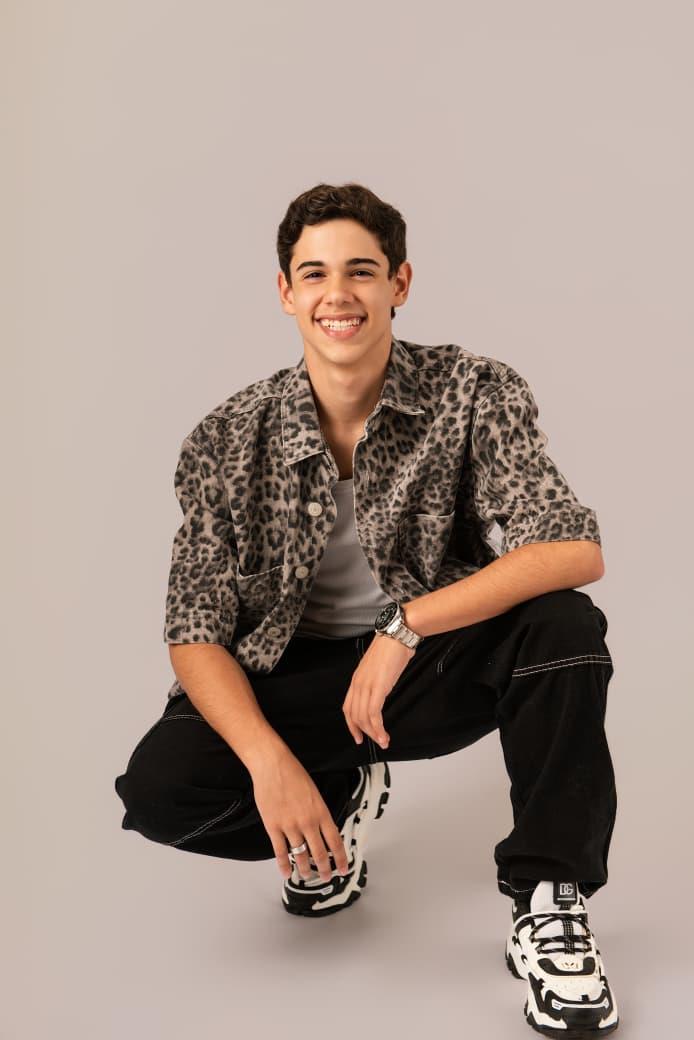
Acting alongside names like Carolina Dieckmann and Caco Ciocler must have been a great experience. What was the biggest lesson you learned from these on-set encounters?
It may seem silly, but I believe it has a big impact. Besides the action scenes, which were physically demanding—strong sun, dry savanna climate—what had the biggest impact on me was simply eating Minas Gerais food again, spending 40 days in Minas Gerais, drinking a little cachaça…
Pedro liked to smoke a straw cigarette, and all of this greatly influenced the character’s experience. Eating a Minas Gerais feijoada, for example, changes the way the body behaves—and this is reflected in the scene. This kind of experience brings veracity and credibility to the portrayed universe.
Interestingly, I realize today that much of what I personally experienced back then was reflected in the character. Romantic frustrations, rejections, disappointments—feelings that Pedro also experienced.
At the time, I wasn’t aware of it, but seeing it on screen, I realize how it gave a very real and interesting layer to the character. I think audiences, especially those who know me, will notice that.
You’ve also performed on stage with “DPA – The Play 2: A Musical Mystery in Magowood.” How does your energy and performance change when you’re in front of an audience instead of a camera?
Themes like self-esteem, spirituality, and overcoming challenges influence me not only as an actor, but also as a human being. These are topics I’m always investigating, about which I enjoy speaking, writing, and creating.
Recently, an interviewer asked me what I love more—music or acting—and I replied that it would be like asking a mother of two which she loves more. It’s impossible to choose, because both are parts of my being and complement each other.
I believe that a good actor is built through the books he reads, the conversations he has, the places he visits, the smells, flavors, encounters and goodbyes.
I remake and reinvent myself every day as an actor. The better I am as a person, singer, and performer, the better I become as an artist—plural and multifaceted, as I consider myself.
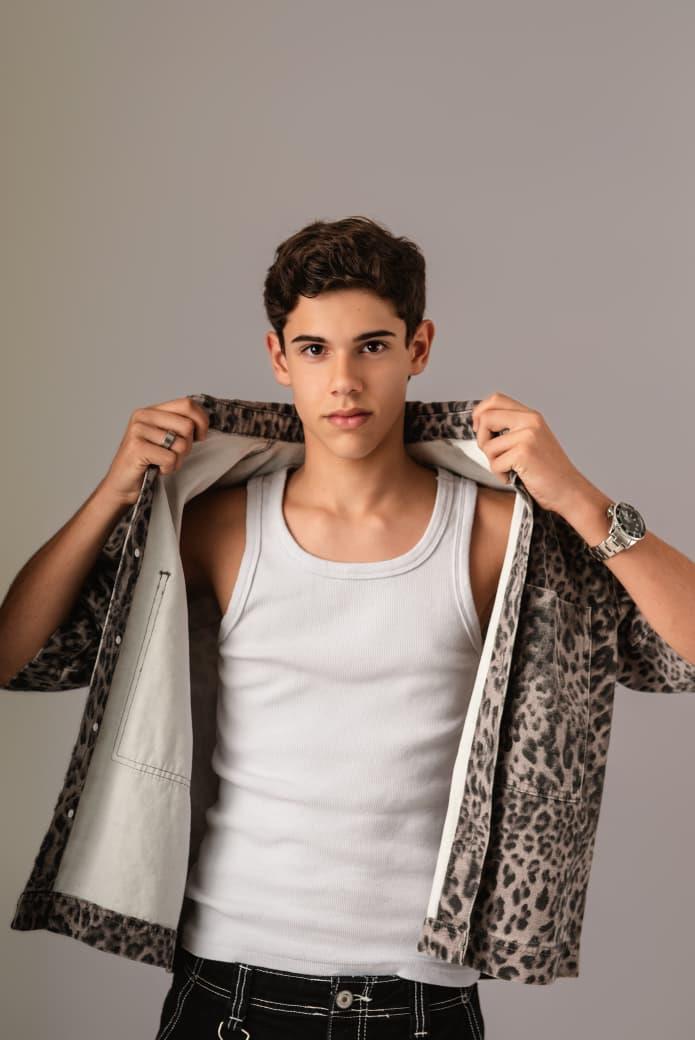
At just 13 years old, you’ve already built a solid career. What motivates you most as an artist today, and what kind of projects do you dream of doing in the future?
I’m definitely experiencing a major turning point in my life. I went from a dark series with vampires and werewolves to a children’s play and now I’m heading to a comedy.
This is a true gift for any artist, because moving through different styles enhances the work and expands the creative tools.
Art has this power—laughter transforms as much as fear. Each audience is touched differently, and both provoke reflection.
The children’s show, for example, helped me rediscover my inner child. Just like in comedy, the focus isn’t on “being funny,” but on bringing the truth of life to life. A good comedy grows out of a good drama.
I’m living a very special moment: returning to the theater, making my streaming debut, welcoming new fans, and seeing people discover my work. I hope this opens many doors and allows more people to follow this new phase.
Outside of recording and performing, who is Stefano? What do you enjoy doing in your day-to-day life, when you’re not in the arts?
Yes, I really want to show where I came from, my message and my essence.
If I could sum it up in three words, they would be: humility, simplicity and courage.
These are the values I learned and carry with me — being honest, working without stepping on anyone, doing the right thing for the right reason, and waiting patiently for things to happen.
The essence of my work is about respect, love, and connection with others, the environment, animals, and people.
I am a plural artist, raised in the midst of music and artistic diversity, and I want this to shine through in what I do.
I want people to see me as honest, humble, and passionate about working and telling stories—both Brazilian and from around the world. I’ve had the privilege of visiting many countries, and each experience has shaped who I am today.
Follow Stéfano Agostini on Instagram

